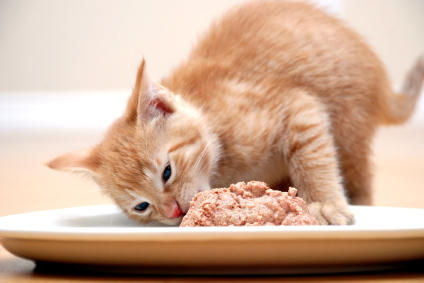Health
A Guide To Feeding Your Pregnant Cat
Just like human mothers to be have to change their diet while they’re expecting, other expecting animals’ dietary needs also change. When it comes to domesticated animals, pet owners need to be aware of their pregnant pet’s needs. For queens (pregnant cats), for instance an owner will need to change food amounts, content as well as feed frequency. Here’s what you should know if you have a queen on your hands:
Increasing Amounts
As your cat’s pregnancy proceeds into its latent stages, you’ll gradually need to be increasing the amount of food you give her. During the last three weeks especially, make sure you are feeding her at least three times her regular amount. If you notice your cat under eating, consult with your vet as it may point to a gestational problem.

Your cat may not be able to eat large amounts of food in one go as the developing kittens are taking up space, so feed her small frequent meals through the day and keep dry food out at all times.
Increased Protein
When pregnant, a queen needs extra protein to help the kitten foetuses grow. Mix extra high quality meats (chicken, duck) into your cat’s food if you feed her a homemade diet or buy high protein cat food if she’s on a store bought diet.
Switch To Kitten Food
In the latent stages of a queen’s pregnancy many vets recommend that the owner feed her kitten food which is specially formulated for growing cats to provide her growing kittens the nutrition they need. The kitten food will also give her the added energy she needs to carry the kittens and give birth.
Hydration
Be sure that there’s always clean, fresh water for your cat out. If you notice she’s not drinking enough, try to tempt her by offering her pre-packaged wet food, or meat broth. Do not give her milk as her system will not be able to process the enzymes in the milk while she’s expecting.
Through following these tips and consulting with your vet, you can help your cat’s pregnancy go as smoothly as possible.





















